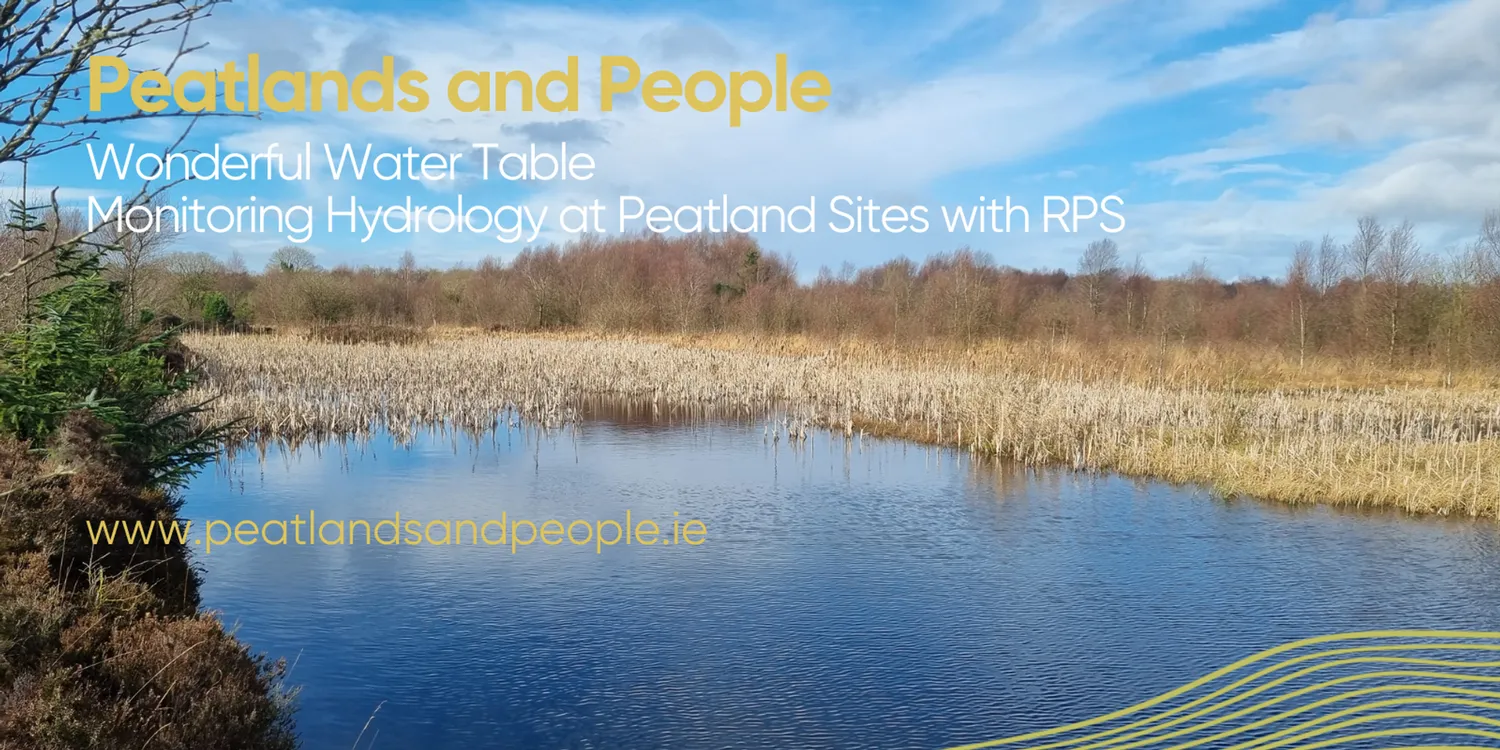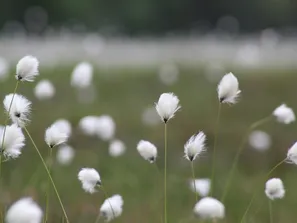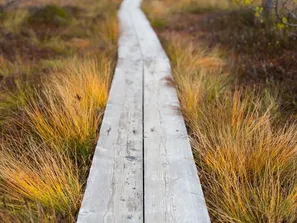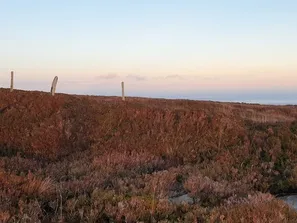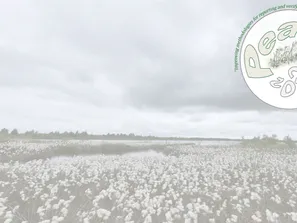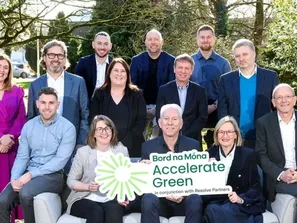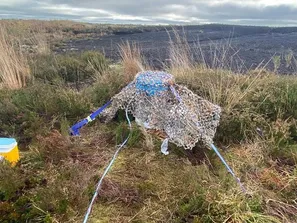16 May 2023
Photograph by RPS Group. The team visits the project sites every month to monitor water levels using technology such as dip-wells that measure water-table depth, and automated logging devices that collect high-resolution data.
RPS Group is an environmental consultancy based in Ireland and the UK who have been contracted by LIFE IP Peatlands and People to carry out restoration work on NPWS project sites, including designing restoration plans, developing drainage management plans and monitoring hydrology.
Peatland restoration is the process of recovering the functions of drained or degraded peatlands through reintroducing their natural, waterlogged conditions. Common restoration techniques include rewetting, meaning to raise the water table of the peatland, and vegetation restoration, which is the reintroduction of vegetation specific to peatlands. Rewetting and restoring bogs to their natural conditions, where vegetation such as Sphagnum moss thrives, is essential to ensure that these landscapes act as carbon "sinks" that absorb carbon rather than as carbon sources.
Hydrological Monitoring
Knowledge of the behaviour of water on bogs has proven fundamental to understanding their ecology. Therefore, it is important to ensure that hydrological conditions are understood before restoration is carried out so that an appropriate restoration strategy can be developed.
RPS has developed a hydrological monitoring network consisting of 151 monitoring locations across several Peatlands and People sites. To develop the network, RPS created an initial hydrological characterisation for each site based on existing hydrological data, topographic data and site-specific hydrological models. Site surveys have been conducted to inform further characterisation. The monitoring locations include shallow phreatic wells, which measure groundwater level, and deeper piezometer wells, which monitor water pressure.
Monitoring will be carried out pre and post-restoration to assess the impact that restoration has on water levels. Additionally, RPS will work at two project sites to assess the effect of restoration on flow regime and water quality. The research will provide evidence to support the need for peatland restoration on a wider scale.
Find out more about the work ongoing in Pillar 1: Peatlands Excellence.
